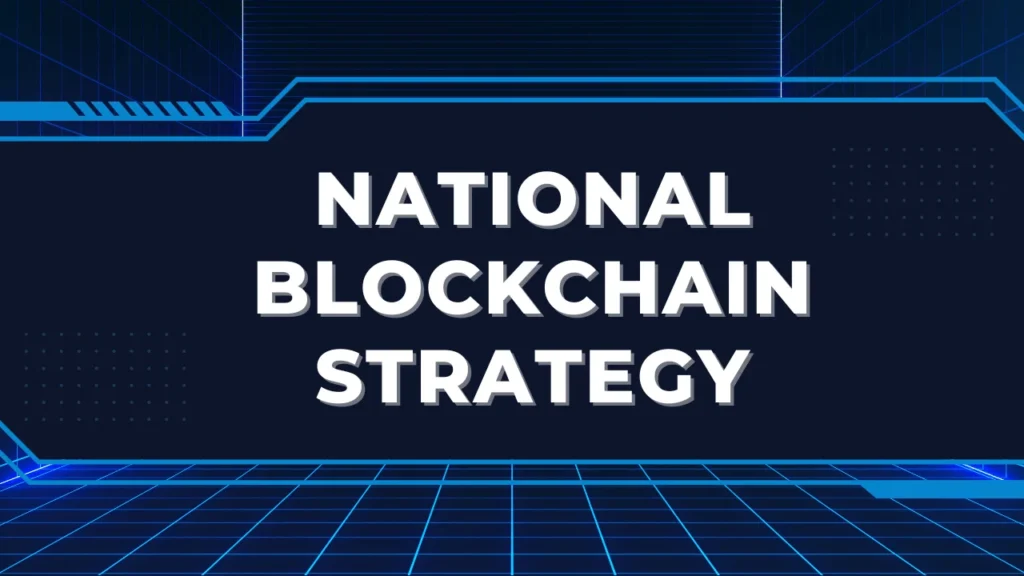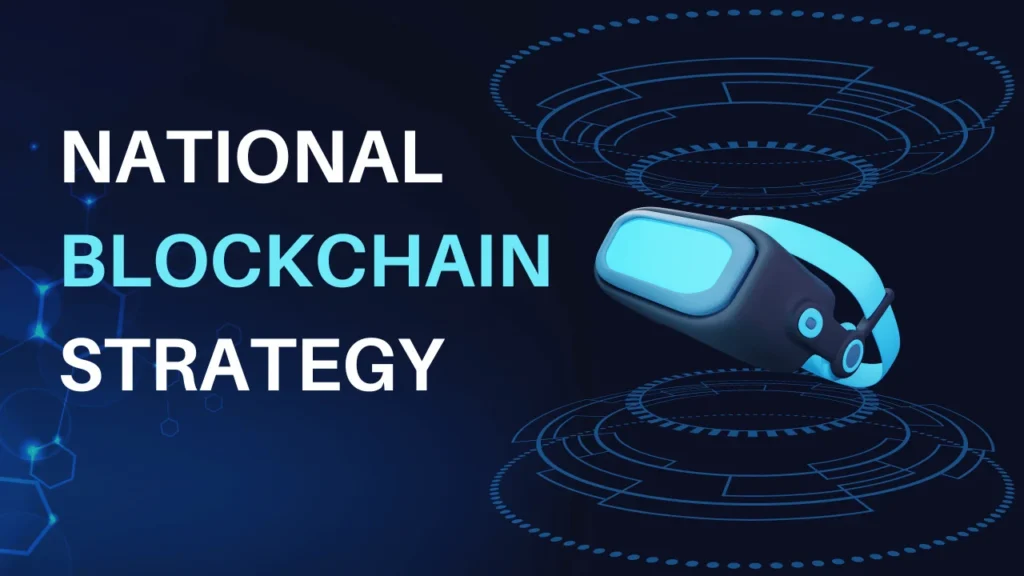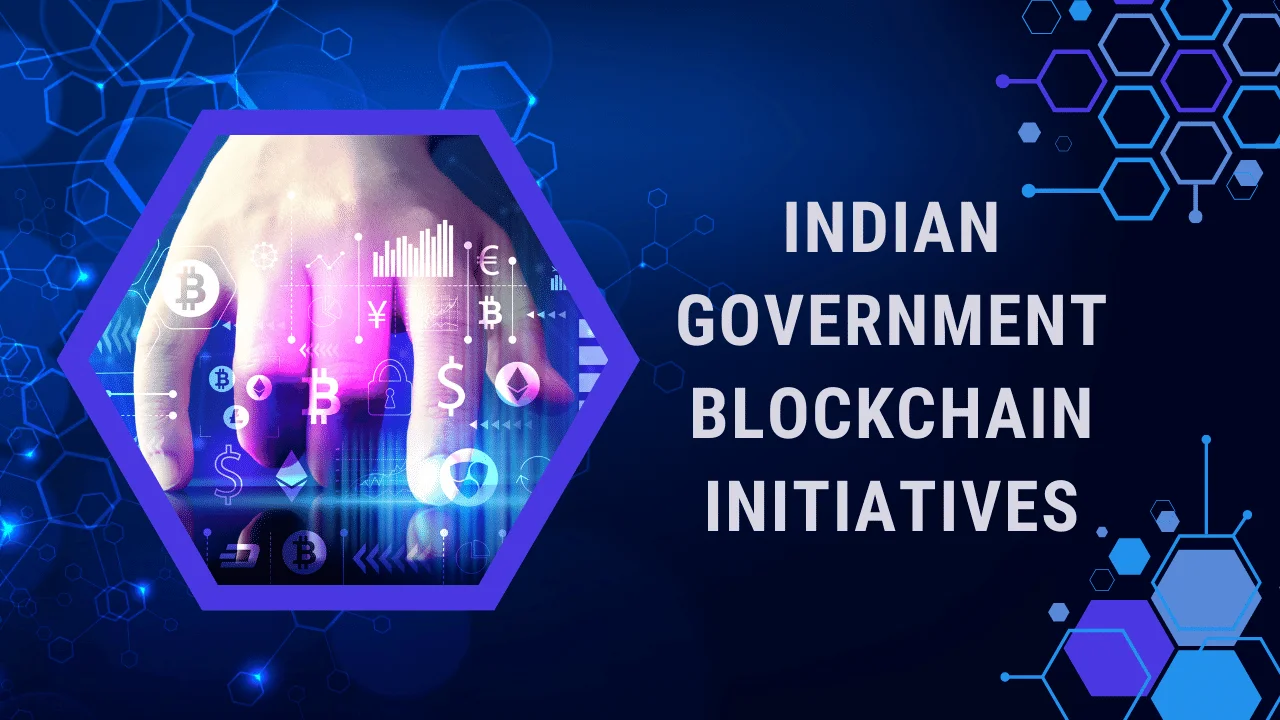The Indian Government Blockchain Initiatives are emblematic of a broader trend where governments are increasingly leveraging innovative technologies to bolster governance and spur economic growth. In the rapidly evolving digital terrain, blockchain stands out as a frontrunner with immense potential to transform various facets of governmental operations, from service delivery to financial transactions and data handling. Through strategic implementation of blockchain projects focused on enhancing efficiency, fostering transparency, and driving economic progress, the Indian government is not only embracing technological advancements but also setting a precedent for other nations to emulate, thereby ushering in a new era of more transparent and efficient governance.
What Blockchain Means for India?
Central to blockchain technology is a distributed ledger that, when shared across several computers, records transactions in an immutable way. This technology is perfect for enhancing public service delivery and governance because of its many advantages, such as lower costs, more security, and no middlemen. India views blockchain as more than just a technology; it is a strategic instrument for boosting economic growth, improving governance, and encouraging innovation. To ensure that these advantages are fully realised, the government is implementing initiatives in this area with the goal of making India a global leader in blockchain technology.
NITI Aayog Blockchain Partnership

Expanding the Blockchain Ecosystem
It is clear that India is serious about implementing blockchain technology in all sorts of industries thanks to the collaboration between NITI Aayog and other groups like 5ire and Network Capital. This collaboration is aimed at enhancing the blockchain module applications, exploring new use cases, and fostering an ecosystem that supports innovation and growth in the blockchain domain.
Fostering Innovation and Efficiency
The National Institution for Transforming India (NITI) Aayog is teaming up with 5ire and Network Capital to harness blockchain technology’s enormous potential for bettering the delivery of public services. As part of this effort, we must make governmental operations more open, effective, and welcoming to the general public. Using blockchain technology to address problems in areas like healthcare, education, and agriculture is another goal of the initiative, which aims to boost efficiency and innovation in these fields.
MSME Lending with IndiaChain
In the context of micro, small, and medium enterprise (MSME) lending, IndiaChain is a giant leap forward in the use of blockchain technology for efficiency and inclusivity in finance. The small and medium businesses that drive India’s economy are going to be easier to get loans for thanks to this project’s goal of creating a safe, transparent, and efficient lending platform.
Land Records in Kolkata
The Kolkata land mutation project, which uses NFTs, is one of the most prominent examples of blockchain technology in governance. With this project, land records management is about to undergo a dramatic shift, leading to the safer, more open, and more efficient administration of more than 27,000 acres of land. This project showcases the real-world advantages of blockchain technology in improving transparency and accountability in government.
National Blockchain Strategy

Guiding Principles for Blockchain Adoption
An all-encompassing plan for integrating blockchain technology into public administration and service provision is laid out in the national blockchain strategy. To make sure that blockchain is used in a way that benefits the country and helps government run more smoothly, it lays out rules for how it should be used in different industries.
Encouraging Research and Development
Research and development in the blockchain space is prioritised as part of the national strategy. The blockchain technology relies on innovation to continue growing, so the government is investing heavily in research and development. Funding blockchain projects, easing academic-industry partnerships, and promoting the discovery of new use cases are all part of this.
Blockchain in Public Service Delivery
Improving Transparency and Efficiency
Government processes can be made more transparent and efficient with the help of blockchain technology when it comes to providing public services. Financing transactions, managing land records, and issuing verifiable certificates are just a few areas where blockchain technology can help simplify operations, cut down on bureaucracy, and boost public trust in government services.
Fostering Economic Development
Projects involving blockchain technology are also considered as a driver of economic growth. Economic growth can be greatly aided by blockchain technology, which can streamline government services and lower transaction costs. This is especially important for India, as the country is actively seeking technology-driven solutions to advance its economy.
Blockchain for Verifiable Certificates
One major step towards making official documents more secure and trustworthy is the introduction of blockchain-based verifiable certificates. Certificates are guaranteed to be authentic and reliable thanks to this initiative, which streamlines the process of issuing and verifying them while simultaneously lowering the risk of fraud.
Challenges and Future Prospects
Although there are some obstacles, the blockchain projects launched by the Indian government show promise. Among these, you can find the necessity for broad knowledge and adoption, as well as regulatory uncertainties and technological hurdles. A hopeful picture for India’s future governance and economic development emerges from the government’s commitment to overcoming these challenges and the potential benefits of blockchain.
Economic Development Blockchain Initiatives
Along with its revolutionary effects on the digital world, blockchain technology is quickly becoming an indispensable instrument for monetary growth. The government of India is capitalising on this opportunity by launching blockchain projects to increase financial inclusion, boost economic growth, and assist small and medium enterprises (SMEs).
SME Efficiency and Security
Small and medium-sized businesses in India have never had it so good with blockchain technology, which mainly improves security and efficiency. Small and medium-sized enterprises (SMEs) can improve their supply chain management, transaction security, and fraud prevention by using distributed ledger technology. This enhanced effectiveness has a multiplicative effect on the country’s economic growth, increasing both productivity and GDP.
Streamlining Financial Transactions
Blockchain technology brings an unprecedented degree of security and openness to monetary transactions. Financial services in India will become cheaper, intermediaries will become obsolete, and transaction times will decrease as a result. To improve the ease of doing business and attract both domestic and international investment, these improvements are crucial.
Driving Innovation in the Digital Economy
As part of its plan to boost its economy, India is putting a premium on the digital economy. In this setting, blockchain projects are vital because they are propelling innovation in areas such as digital identities, smart contracts, and digital transactions. To guarantee long-term growth and worldwide competitiveness, the government is working to build a strong digital economy.
Blockchain Use Cases in Indian Government
Blockchain technology is being investigated and potentially used by the Indian government in a number of different areas. These examples show how the government is using technology for the common good and to boost the economy.
Blockchain for Public Health Management
When it comes to healthcare, blockchain has the potential to completely transform record storage and sharing while simultaneously enhancing privacy, security, and interoperability. The nation’s healthcare system, patient care, and public health management can all benefit from this.
Smart Contracts for Government Contracts
Blockchain technology enables smart contracts, which automate contract execution and guarantee efficient and transparent fulfilment of terms. For government contracts in particular, this app is useful because it can cut down on delays, stop fraud, and make sure everyone is treated fairly.
Secure Voting Mechanisms
Voting systems that are both secure and transparent can also be built using blockchain technology. By making voting easier, more trustworthy, and less susceptible to fraud, this project has the potential to improve India’s democratic system and its ability to govern its citizens.
Digital Infrastructure Development
To successfully implement blockchain technology, a strong digital infrastructure must be built. To guarantee its citizens have access to fast internet and safe digital platforms, the Indian government is investing in this sector in an effort to lay the groundwork for blockchain applications.
FAQs
What is the main goal of Indian government blockchain initiatives?
The overarching objective is to increase economic growth, efficiency, and transparency by implementing blockchain technology in different areas.
How does blockchain benefit SMEs in India?
Economic development is aided by blockchain technology, which increases efficiency and security for SMEs, simplifies operations, and safeguards against fraud.
Can blockchain technology improve public health management?
With blockchain technology, medical records can be stored and shared in a way that is more private, secure, and interoperable than ever before.
What are smart contracts, and how are they used in government contracts?
To automate and secure the government’s contracting processes, smart contracts are utilised. These contracts have their terms written into code and are able to execute themselves.
How does the Indian government plan to support blockchain technology?
Through the implementation of blockchain technology into public services and economic development programmes, promotion of research and development, and the construction of strong digital infrastructure.
Also Read: Blockchain for Indian Supply Chain: Detailed Note
Conclusion
A pioneering attempt to use blockchain technology for national development, the Indian government has launched a number of initiatives under the umbrella of Indian Government Blockchain Initiatives. Blockchain technology has the potential to revolutionise various aspects of India’s economy, including small and medium-sized enterprises (SMEs), financial transactions, and innovation in the digital realm. These initiatives aim to reshape the economic and governmental landscape of India for the digital age through strategic implementation across various sectors, including public health, government contracts, and secure voting mechanisms. They are more than just about adopting new technology. The prospect of a more open, efficient, and economically thriving India is becoming closer and closer as the country delves deeper into blockchain technology.

Timothy Jensen is an expert writer who specializes in the world of cryptocurrencies, including blockchain technology and Bitcoin. He has a passion for explaining complex topics in an easy-to-understand way. Timothy’s work aims to demystify the digital currency landscape for his readers.

